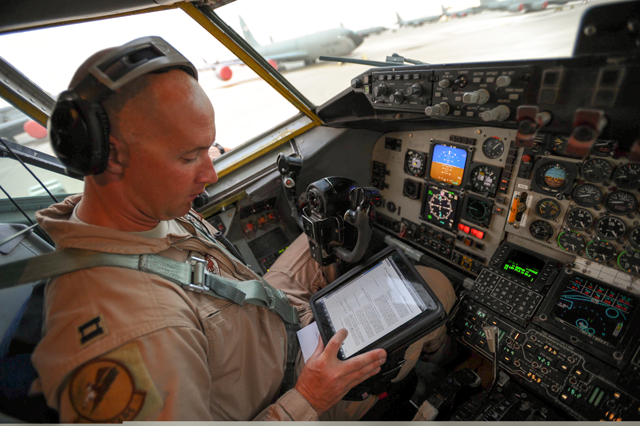
Should the IMO or USCG restrict the use of iPhones and iPads on ships?
The technology site Verge tells us “It makes perfect sense, but according to rules that have been in the books since 1981, use of such devices was allowed so long as pilots waited until the plane was above 10,000 feet. If a new proposal from the U.S. Federal Aviation Administration (FAA) is passed, however, crew members in the cockpit won’t be allowed to check email, browse the web, text, game, or perform any other personal activity on their device during any point of the flight.”
According to the 19-page report the FAA published today in the Federal Register, the proposal doesn’t restrict the use of electronic devices that assist “emergency, safety-related, or employment-related communications.” In the past commercial pilots were required to bring up to 40 pounds of manuals and publications with them during each flight but, in recent years, these have been replaced with “electronic flight bags”, devices similar to iPads which help pilots perform flight management tasks electronically.
The purpose of the regulation is to reduce distractions for pilots so they can pay better attention to air-traffic control, weather, environmental hazards and other concerns. But the new regulation goes a step further than prevention simple “texting while driving” and restricts the use of nearly all personal electronic equipment while you’re operating the airplane. “Texting while driving has proven to be a dangerous distraction” said one pilot “and with the addition of wireless internet on many commercial flights, the FAA also wants to prevent pilots from surf the internet, update Facebook and watching videos while operating commercial aircraft.”
In February 2009 a text message was sent by the the co-pilot in Colgan Air Flight 3407 just 5 minutes before takeoff. In the hour that followed the flight crashed, killing 50 people. The National Transportation Safety Board (NTSB) did not claim the use of personal electronics caused the crash but it did recommended that the FAA prohibit their use in the cockpit.
This proposal brings up two questions for mariners. First, will shipping companies follow aviations lead and move operational manuals onto iPad like devices? Second, with cell phone being a contributing cause of numerous marine incidents accross the globe, from the mega-crusie ship disasters to small passenger boat tragedies, will the US Coast Guard follow the FAA’s lead and ban the use of electronic devices on US Flagged ships?
FAA will collect comments about the proposal for 60 days.
Via: